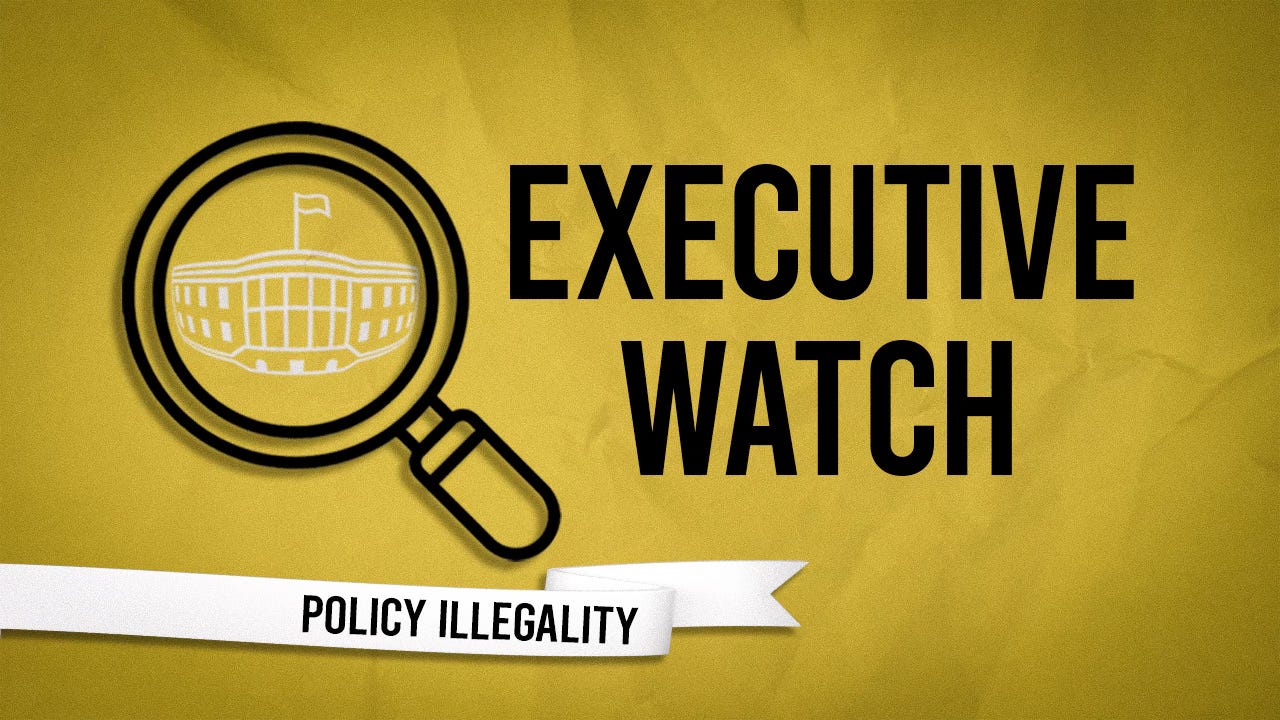Donald Trump Once Again Violates the Law Banning TikTok for His Own Political Benefit
One of Donald Trump’s first acts in office was to declare that he would not enforce a law banning the Chinese-government-controlled social media network TikTok. In fact, he has actively shielded companies defying the ban from liability. One can debate whether Congress should have passed the ban. But his refusal to enforce the duly-enacted ban is illegal.
The Executive Functions blog provides an overview:
The Supreme Court rushed to uphold the constitutionality of the TikTok ban on January 17. On January 19, the day the law came into effect, TikTok stopped working for U.S. users but then “flickered back to life … after President-elect Donald J. Trump said that he would issue an executive order to stall a federal ban of the app.”
The next day, January 20, Trump issued an executive order that instructed the attorney general to not enforce the act for 75 days so that Trump could assess the foreign policy implications of the ban and negotiate a workaround. The president also ordered the attorney general to take steps to immunize the private firms from any liability by suspending enforcement and penalties, including retroactively to January 19; by telling providers that they had not violated the statute and would face no liability for acting contrary to it; and by claiming that the president’s enforcement discretion precludes—because of unexplained and clearly spurious national security concerns—states or private entities from suing violators of the act.
The attorney general apparently communicated to the relevant firms concerning their non-liability. President Trump extended the non-enforcement directive on April 4 until today.
Today the President “further extended” the original executive order “until September 17, 2025”—that is, 90 days this time instead of 75. The statute establishing the TikTok ban authorized the president to grant a “1-time extension of not more than 90 days with respect to the date on which this subsection would otherwise apply to” TikTok only if the president certifies to Congress concrete progress toward divestiture of TikTok—including “binding legal agreements to enable execution” of divestiture “in place.” There has been talk of divestiture negotiations between ByteDance and Oracle. But as of the writing I have seen no reporting that suggests the president has certified anything to Congress. And it doesn’t matter even if he did meet the statutory criteria and certify now, since the extension only applied to the first 90 days after January 19, 2025.
Executive Functions explores the constitutional basis for “prosecutorial discretion” and finds that this meets none of the criteria, since “it is a refusal to enforce a law simply on the ground that the president does not like it.” Compare this to his threats against media companies he does not like.
We can add that Trump wants to save TikTok because he regards it as a friendly medium—and its executives have intensively lobbied him and supported his campaign. So he is disobeying the law specifically for his own partisan advantage.
The Executive Watch is a project of the Institute for the Study of Modern Authoritarianism, and its flagship publication The UnPopulist, to track in an ongoing way the abuses of the power of the American presidency. It sorts these abuses into five categories: Personal Grift, Political Corruption, Presidential Retribution, Power Consolidation, and Policy Illegality. Click the category of interest to get an overview of all the abuses under it.
© The UnPopulist, 2025
Follow us on Bluesky, Threads, YouTube, TikTok, Facebook, Instagram, and X.




